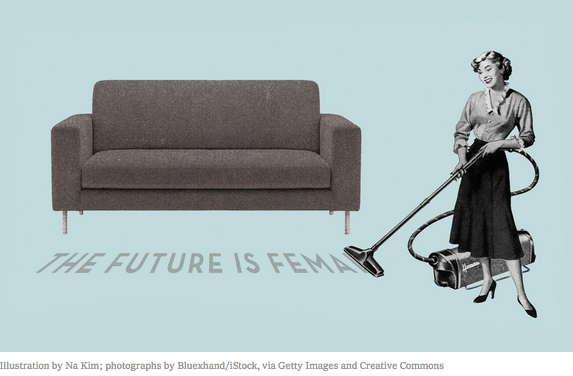In a podcast interview posted last spring, Nicole Jorgenson, a singer and former schoolteacher in North Dakota, explains to her host that she has never been happier since marrying and having children. And yet between cute pastoral anecdotes of growing her own vegetables and making banana bread, it soon becomes clear that Ms. Jorgenson is advocating something sinister — not just a return to agrarian motherhood.
She lived in Germany temporarily, she says, but left just before “an influx of refugees took over the country.” She just had a child and thinks the new baby is beautiful — but maybe not quite in the same way all mothers do: “I always wanted children that looked like me,” she says, “blond-haired, blue-eyed babies, but I kind of had to say it under my breath.”
By the time the interviewer begins to gush about how wonderful it is that Ms. Jorgenson and her husband are both of Norwegian heritage — “you guys come from the same blood” — it’s clear what political demographic both women are catering to. Ms. Jorgenson is being interviewed on Radio 3Fourteen, a white supremacist talk radio program; it is interviewing her because she considers herself a tradwife.
The digital far right, frequently called the alt-right, is largely regarded as a men-only space. The photographs from the white nationalist rally in Charlottesville, Va., were striking for the lack of female faces in a sea of button-down-wearing snarls. The movement shares DNA with so-called incels, a network of men who feel women have unfairly denied them sexual relationships. And it is defined in part by its misogyny and its anti-feminist, anti-woman language.




